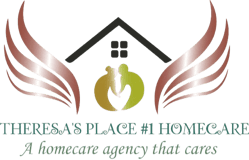When you’re weighing the options of home care versus assisted living in Essex County, it’s essential to take into account both financial and personal aspects. Home care offers a cozy, familiar setting, while assisted living provides a structured environment with various amenities. Costs can vary greatly depending on location and the level of care needed. How do you decide which path guarantees the best balance of cost and quality for your loved one’s well-being?
Understanding Home Care Services
When considering home care services for a loved one, it’s essential to understand what they entail and how they can be customized to meet individual needs. Home care benefits include personalized assistance in a familiar environment, promoting comfort and independence. It’s important to evaluate caregiver qualifications, ensuring they possess the necessary skills and compassion to provide quality care. Certified caregivers are trained to handle various needs, from daily activities to medical assistance. By hiring qualified professionals, you’re ensuring your loved one receives attentive, empathetic care that respects their dignity and preferences. Additionally, home care offers flexibility, allowing services to adjust as needs evolve, which can be more appealing compared to the structured nature of other care options.
Exploring Assisted Living Facilities
While home care provides a personalized touch within the comfort of one’s own residence, exploring assisted living facilities offers a different set of benefits that might suit your loved one’s lifestyle and care needs. These facilities often come equipped with assisted living amenities designed to enhance daily life. Your loved one can enjoy housekeeping services, transportation, and nutritious meals, all contributing to their well-being. In addition, assisted living communities in Essex County often feature diverse resident activities, fostering social interaction and mental stimulation. From exercise classes to art workshops, these activities encourage residents to stay engaged and active. Ultimately, assisted living facilities offer a supportive environment where your loved one can thrive while maintaining a sense of independence and community involvement.
Financial Considerations for Home Care
When considering home care in Essex County, it’s important to evaluate the varying hourly rates, which can greatly impact your budget. You’ll want to understand your insurance coverage options to make sure you’re maximizing potential benefits and minimizing out-of-pocket expenses. Additionally, factor in the costs of necessary equipment and supplies, as these can add up quickly and affect your financial planning.
Hourly Rates Analysis
Considering the financial aspects of home care in Essex County, it’s vital to analyze the hourly rates to make informed decisions. Understanding hourly wage trends and caregiver qualifications can greatly impact your budget and the quality of care received. Here’s a breakdown to guide your evaluation:
- Hourly Wage Trends: Explore recent wage increases which can affect overall costs. Stay updated on how local economic conditions influence these rates.
- Caregiver Qualifications: Highly qualified caregivers might command higher rates, reflecting their expertise and specialized skills.
- Experience Level: More experienced caregivers may charge more, but they often bring valuable insights and reliability.
- Demand Fluctuations: Seasonal demand can cause shifts in hourly rates, affecting both availability and pricing.
Insurance Coverage Options
How can insurance coverage play a pivotal role in managing the financial aspects of home care in Essex County? Steering through insurance plan options can greatly ease the financial burden. You’ll find that some insurance plans offer extensive coverage for home care services, reducing out-of-pocket expenses. However, it’s vital to understand coverage limitations to avoid unexpected costs. Not all plans cover every aspect of home care, so scrutinizing the details of your policy is essential. Some plans may cover personal care but exclude skilled nursing. By carefully analyzing your insurance plan options, you can make informed decisions, ensuring the coverage aligns with your needs. An empathetic approach to understanding these factors can help you balance care quality with financial sustainability.
Equipment and Supplies Costs
Maneuvering the costs associated with equipment and supplies for home care in Essex County requires a strategic approach. You need to evaluate both initial and ongoing expenses. Here’s a breakdown to guide your financial planning:
- Equipment Purchase: Investing in durable medical equipment can be costly upfront. Prioritize essential items.
- Equipment Maintenance: Regular upkeep is vital to guarantee safety and functionality. Allocate funds for potential repairs.
- Supply Sourcing: Identifying affordable suppliers helps manage recurring costs. Explore bulk purchasing or discounts.
- Insurance and Assistance: Check if your insurance covers specific equipment and supplies. Seek out local programs for financial aid.
Cost Analysis of Assisted Living in Essex County
When evaluating the cost of assisted living in Essex County, it’s important to take into account various factors that impact expenses. You’ll find that the price isn’t just about the monthly fee but also the assisted living amenities offered. Facilities often include dining services, housekeeping, and recreational activities, which can vary widely in quality and availability. A thorough cost comparison will help you understand how these amenities influence the overall expense.
Consider the location and the level of care required. Proximity to urban centers often increases costs, while specialized care for medical needs can add to your budget. It’s vital to balance the initial sticker price with the benefits provided, ensuring you or your loved one receives appropriate care without financial strain.
Comparing Quality of Care
Evaluating the quality of care in home care versus assisted living in Essex County requires a keen understanding of each option’s strengths. When considering quality assurance and caregiver qualifications, both settings offer unique benefits.
- Home Care: Provides personalized attention with caregivers often having specialized training to meet individual needs. This guarantees a customized approach to quality assurance.
- Assisted Living: Offers a structured environment with staff trained in extensive care, maintaining consistent quality standards.
- Caregiver Qualifications: In assisted living, caregivers typically have certifications that validate their expertise, while home care providers might focus on one-on-one skill development.
- Monitoring and Feedback: Assisted living facilities often have rigorous oversight, whereas home care relies heavily on family feedback to maintain quality assurance.
Understanding these factors helps you make an informed decision.
Lifestyle Impact on Seniors
While choosing between home care and assisted living, it’s crucial to contemplate how each option impacts a senior’s lifestyle in Essex County. Home care allows seniors to remain in familiar surroundings, potentially enhancing emotional well-being by maintaining personal routines. However, it could limit social engagement unless proactive steps are taken to connect with community activities. On the other hand, assisted living facilities provide structured opportunities for social engagement through organized events and communal dining. This environment can boost emotional well-being by fostering interactions and friendships. Yet, the shift to a new setting might initially feel challenging. Ultimately, your decision should weigh the importance of maintaining cherished routines versus the potential benefits of increased social interaction and support available in assisted living communities.
Evaluating Safety and Health Standards
Determining the right care option for seniors involves examining the safety and health standards of home care and assisted living in Essex County. Each option has distinct safety protocols and health regulations that you should consider.
- Home Care: You must verify that caregivers follow rigorous safety protocols, including emergency procedures and medication management. Confirm that they’re trained and certified according to health regulations.
- Assisted Living: Facilities are subject to stringent health regulations, requiring regular inspections. They offer a controlled environment with 24/7 monitoring, guaranteeing immediate response to emergencies.
- Support Services: Evaluate the availability of medical support, like nursing or therapy services, customized to individual needs.
- Environment: Assess the cleanliness and maintenance of the living space, ensuring it meets high safety standards.
Understanding these aspects helps you make informed decisions for your loved one’s well-being.
Making the Right Decision for Your Family
When you’re faced with choosing between home care and assisted living for a loved one, it’s essential to assess their specific care needs and how these align with available services. Consider the financial implications of each option, weighing factors such as long-term affordability and potential hidden costs. By thoroughly analyzing these aspects, you can make an informed decision that prioritizes both the well-being of your family member and your family’s financial stability.
Evaluating Care Needs
How do you decide what’s best for your loved one’s care? Start by conducting thorough care assessments to understand their specific needs. Consider the following:
- Health Requirements: Analyze medical conditions and daily assistance needs. Does your loved one require specialized medical care or just occasional help with daily activities?
- Personal Preferences: Respect their lifestyle desires. Would they prefer staying at home with familiar surroundings or socializing in a community setting?
- Safety Concerns: Evaluate environmental safety. Is their current living situation equipped for aging, or does it pose risks?
- Emotional Well-being: Assess emotional health. Would they thrive with personal attention at home or find joy in assisted living’s social opportunities?
Balancing these factors helps guarantee you make the right decision.
Financial Considerations
While evaluating care options for your loved one, it’s essential to address financial considerations as they can greatly influence the decision-making process. Start with an extensive budget assessment to understand the costs associated with home care and assisted living in Essex County. Home care often involves variable expenses based on hourly rates, while assisted living typically offers a more predictable monthly fee covering housing, meals, and care services.
Engage in detailed financial planning to align these costs with your family’s resources. Consider potential funding sources like long-term care insurance, savings, or government assistance programs. By thoroughly analyzing these aspects, you’ll be better equipped to make a choice that not only meets your loved one’s needs but also respects your family’s financial boundaries.
Frequently Asked Questions
Are There Any Government Programs That Assist With the Cost of Home Care or Assisted Living?
You might find government assistance and financial aid programs available to help cover home care or assisted living expenses. Investigate Medicaid, state-specific programs, and veterans benefits, as they often provide essential support for eligible individuals in need.
How Do Cultural Factors Influence the Choice Between Home Care and Assisted Living?
You’ll find cultural beliefs and family traditions greatly shape decisions between home care and assisted living. They guide preferences for maintaining family closeness, honoring elders at home, or choosing professional facilities respecting cultural and familial values.
What Are the Common Misconceptions About Home Care Versus Assisted Living?
You might think home care’s only for basic needs and assisted living lacks personal touch. These misunderstood services often lead to emotional challenges. It’s essential to understand both options thoroughly to make informed decisions.
How Does the Availability of Services Differ in Rural Versus Urban Essex County?
You’ll notice rural services in Essex County often lack the variety and immediacy of urban services. Urban areas offer more healthcare options, but rural regions excel in personalized care, fostering community ties, despite potential service delays.
What Role Do Family Members Play in the Decision-Making Process?
Family dynamics greatly influence your decisions. You’ll consider each member’s input, balancing emotional connections and practical needs. Understanding these dynamics helps you make choices that align with everyone’s interests, ensuring a supportive and harmonious decision-making process.
Conclusion
In choosing between home care and assisted living in Essex County, weigh your loved one’s preferences, budget, and care needs carefully. Home care offers comfort and customized assistance, especially when provided by trusted providers like Theresa’s Place #1 Homecare, known for delivering compassionate and personalized care in the comfort of home. Be sure to scrutinize insurance coverage and caregiver credentials. Assisted living provides structure and amenities, yet often at a higher cost. Prioritize quality of care, lifestyle impact, and safety standards. Ultimately, your decision should align with your family’s values and guarantee the best possible environment for your loved one’s well-being.

